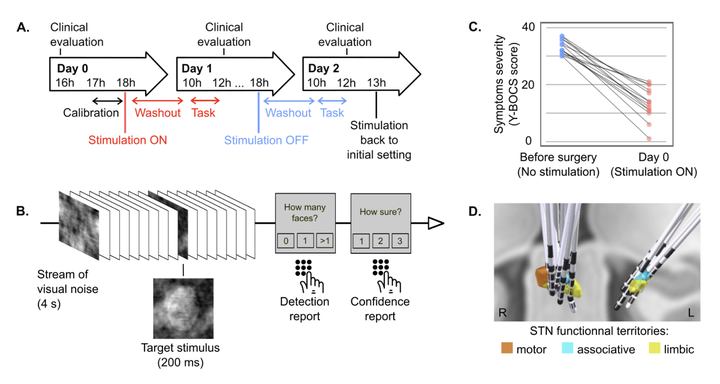Obsessive-compulsive disorder is characterised by metacognitive deficits resistant to subthalamic stimulation

Abstract
Most human studies on perceptual decision-making are correlational, and few addressed the causal role of the neural markers they identify. Here, we took the opportunity offered by deep brain stimulation to study the causal role of subthalamo-cortical networks on perceptual decision-making and perceptual monitoring. To this end, we asked participants with obsessive-compulsive disorder (OCD) treated with subthalamic stimulation to detect visual stimuli and provide confidence reports while we recorded scalp electroencephalography. Following a preregistered plan, we compared behavioural and neural results between patients off-stimulation and matched healthy controls and among patients on and off-stimulation to identify the effect of subthalamic stimulation on perceptual choices and metacognitive judgments. Our results indicate that patients off-stimulation detected visual stimuli similarly to matched healthy controls but provided poorer confidence judgments indicative of a metacognitive deficit. Moreover, chronic subthalamic stimulation significantly reduced clinical symptoms, but acute stimulation changes did not impact visual detection, confidence, or corresponding event-related potentials at the scalp level. We conclude that acute changes in subthalamic stimulation are insufficient to alleviate metacognitive deficits observed in OCD.